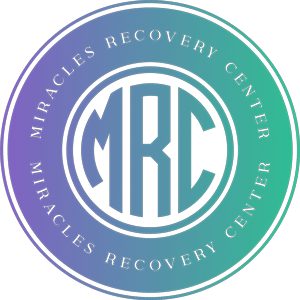Deciding to seek help is the first step towards recovery and wellbeing. Outpatient help programs offer a flexible way to receive support without the need for a hospital stay. Let’s explore who benefits from these programs.
Understanding Outpatient Help Programs
Before we dive into who qualifies, let’s clarify what outpatient help programs are and how they differ from inpatient services. Outpatient programs are designed to offer therapeutic support, medical treatment, or counseling to individuals while they continue to live at home. This approach allows participants to integrate their treatment with daily life, maintaining work, family, and personal commitments.
These programs can vary widely in their scope and objectives. Some focus on mental health, others on substance abuse recovery, and there are those tailored to managing chronic diseases or rehabilitation after surgery. The flexibility and personalized approach of outpatient services make them a preferred option for many seeking help.
A key advantage of outpatient help is the empowerment it gives individuals in their recovery journey. By participating in treatment sessions scheduled around their daily routines, patients are often more motivated and engaged in their path to wellness.
Criteria for Eligibility
So, who qualifies for these programs? Generally, eligibility for outpatient help depends on a few factors. First, the nature and severity of the condition being treated play a crucial role. Outpatient programs are best suited for those who do not require round-the-clock medical supervision.
Moreover, candidates for outpatient treatment must have a stable living situation. This is because the success of the treatment often relies on a supportive home environment. Additionally, individuals who are motivated to recover and who demonstrate a willingness to adhere to the program stand the best chance of benefiting from outpatient services.
Certain health conditions may also affect eligibility. For example, those with severe mental health issues or substance dependency might first need more intensive inpatient care before transitioning to an outpatient setting. It’s all about finding the right level of care for each individual’s unique needs.
The Role of Insurance
Insurance coverage plays a significant role in accessing outpatient services. Many insurance plans have specific provisions and requirements for outpatient treatment, including pre-authorization and limitations on the types of services covered.
Understanding your insurance policy’s fine print is essential. It’s not uncommon for patients to navigate a maze of paperwork and policy details. Knowing what your insurance covers upfront can help manage expectations and prepare for any out-of-pocket costs.
In some cases, insurance companies require a referral from a primary care physician or a mental health professional to approve outpatient treatment. It’s a good idea to communicate with your healthcare provider about your desire for outpatient services to get the ball rolling.
Special Considerations for Certain Populations
Certain groups may have unique needs or additional qualifications for outpatient help. For instance, veterans might find specific programs designed to address PTSD or other service-related conditions. Similarly, adolescents may benefit from outpatient programs that specialize in youth mental health and are tailored to their developmental stage.
Access to outpatient programs can also vary depending on geographical location. Urban areas might offer a wider range of specialized services, while rural communities might have more general programs. It’s important to research what’s available in your area and whether telehealth options can bridge any gaps in service.
How to Apply for Outpatient Help
Ready to take the next step? The application process for outpatient programs often begins with a consultation or assessment. This can typically be arranged through a healthcare provider, local hospital, or directly with the outpatient service.
Gathering documentation is another crucial step. Medical records, a referral from a healthcare professional, and information about your insurance coverage can expedite the process. Preparing this information ahead of time can help make your application as smooth as possible.
Don’t hesitate to ask questions during your initial assessment. It’s the perfect opportunity to understand more about the program’s approach, what your involvement will entail, and how they plan to address your specific needs.
Where to Find More Information
Looking for more details? Comprehensive information on outpatient help programs can often be found through hospital websites, mental health organizations, and governmental health departments. These resources can offer insights into available services, eligibility criteria, and application processes.
Support groups and online forums can also be invaluable resources, providing personal experiences and advice from those who have navigated the outpatient help landscape. Hearing from others in similar situations can offer both comfort and practical guidance.
Taking the Next Steps
Navigating the criteria for outpatient help can seem overwhelming at first, but understanding who qualifies is a crucial step in seeking the right support. Remember, the journey to recovery starts with asking the right questions and reaching out for help.





